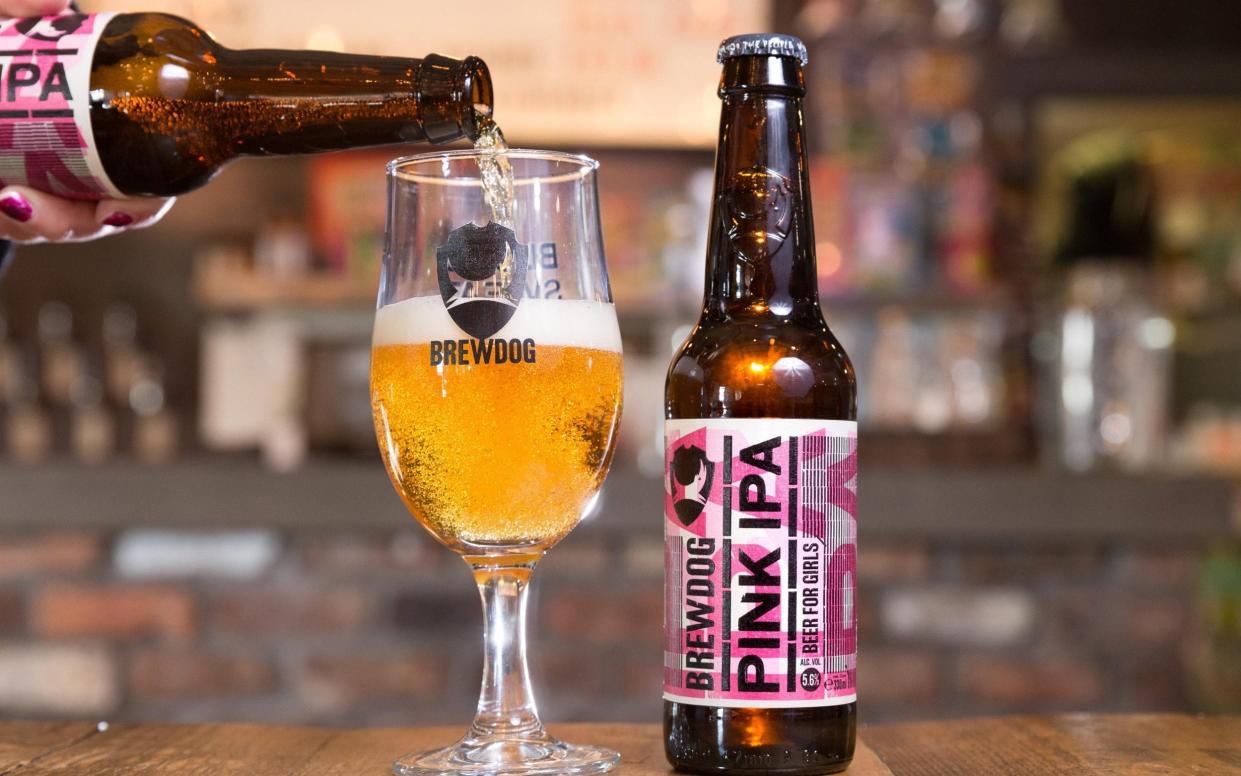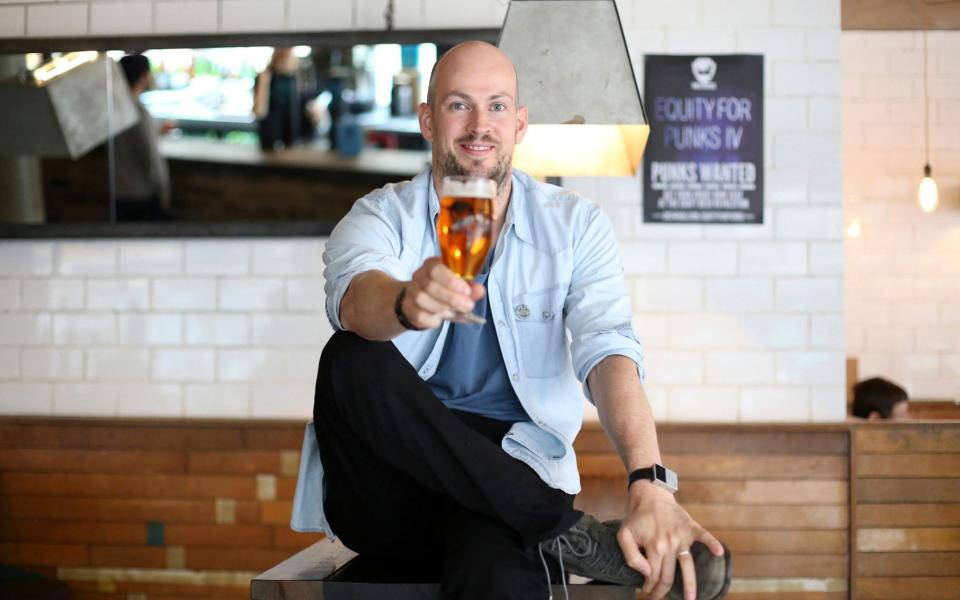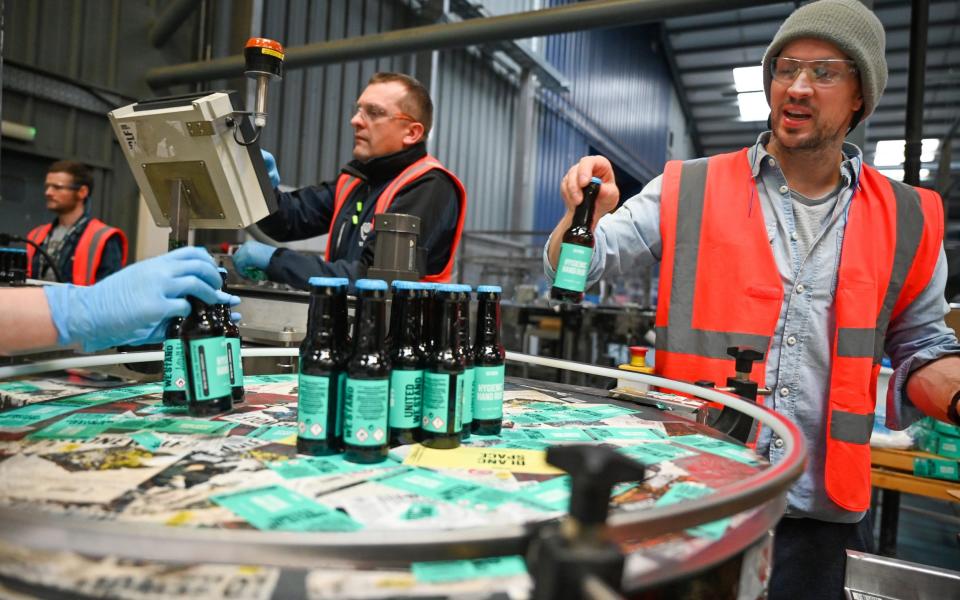Never mind the brickbats, can BrewDog lure the City suits?

- Oops!Something went wrong.Please try again later.
James Watt barely pauses to take a breath. “I’m responsible for this business,” the Scottish chief executive and co-founder of craft brewery company BrewDog says. “Have I always made the best decisions? No, I haven’t. Have I always been the best that I can be? No, I haven’t. But the intention has always been to build the best business we can, look after people the best we can, and that means sometimes you have to make decisions that aren’t popular.”
It seems an odd comment to make. After all, Watt is not talking about changing the snacks in the vending machines or even pushing through salary changes.
Instead, he is addressing claims of a “rotten” culture within the spiky beer company he founded 14 years ago - an environment Watt is alleged to have perpetuated. Earlier this year, a group of 60 former employees published an open letter claiming that staff were “burnt out, afraid and miserable”.
Addressing Watt directly, they said: “It is with you that the responsibility for this rotten culture lies.
“Your attitude and actions are at the heart of the way BrewDog is perceived, from both inside and out.”
Four months later, BrewDog is still dealing with the fallout. Watt says it’s the toughest time he has ever been through in the business. Hiring has been made harder for one thing, piling on more pressure at a time when the labour market is already tight.
BrewDog has struck a conciliatory tone in public, saying it is learning from the claims, interviewing former staff and setting up worker helplines. But there are signs that this has been a tough pill to swallow.
“Some of those people left for disciplinary reasons,” Watt says.
“Look, we should have been clearer about the high performance culture. The problem we’ve had is a lot of people joined, and they wanted the excitement and the dynamism, the opportunities that come with a high growth company, but at the same time they wanted the steady state, perks and benefits that come from a mature company. You don’t get both.
“The mismatch of expectations led to the challenges we faced with former staff.”
BrewDog is clearly keen to not make the same mistakes again. Its employee handbook has been updated to reflect that it has “a high-performance culture which is the only way we can compete with companies hundreds of times our size”, Watt says.

The wrangling has inevitably drawn attention away from BrewDog’s mooted £2.1bn float. Back in April work was picking up pace ahead of a long-awaited market debut, and advisers at Rothschild were meeting with banks. Now the timeline looks more woolly. “Could it be sometime in 2022? Maybe. 23? Maybe,” Watt says.
Watt insists this wasn’t down to the culture backlash. “That happened after we made the decision to push things back,” he says.
Instead, advisers and banks told the company that Covid had made the hospitality industry so uncertain that a delay would be sensible.
Such a cautious approach may now appear to have been unnecessary. While broader market volatility has prompted other kinds of business to put their London floats on hold, some hospitality companies have pushed ahead. Mexican chain Tortilla debuted earlier this month and has seen its shares up 7pc on its float price. TGI Friday’s is due to join the London Stock Exchange next month.
BrewDog, meanwhile, seems to have come through Covid-19 in a surprisingly strong position. Revenue was up 10pc last year at £238m and is on track to rise another 30pc this year. E-commerce sales remain well ahead - and importantly in its bars, sales last week surpassed 2019 levels for the first time since the pandemic hit.

The crowd is different though. More customers are coming in earlier in the day, with sales between 9pm and midnight still down 64pc on pre-pandemic levels. Lunch sales are more than double what they were before the crisis.
Customers are increasingly not just coming in for a beer but buying more food. Before Covid, meals accounted for around 29pc of the company’s hospitality revenue. Now that figure stands at 41pc and BrewDog is looking for venues where it can have larger kitchens.
The company even believes there is an opportunity to attract people who want somewhere to work for the day - a sort of WeWork with pints.
Before Covid hit, BrewDog had launched an initiative known as “Desk Dog” where people could pay to get a desk for the day inside its venues. When they finished, it gave them a beer. BrewDog says it has seen an uptick in users over the past 18 months as remote workers seek to escape from their flats.
This has clearly had a positive effect on BrewDog’s bottom line - although a flirtation with clean-cut office staff is perhaps a challenge for the company’s “punk” image.
For years BrewDog has urged customers to “ride toward anarchy”, and prided itself on railing against the corporate world. The business dropped taxidermy “fat cats” over the City in 2015, and Watt once celebrated raising £25m in crowdfunding rounds by saying: “It’s proof that there is a thirst for alternative finance out there, and that people are sick and tired of the fat cats controlling everyone’s money.”

Now, years later, the business is happy to pour those fat cats a drink. Bankers will play an important role in its marketing debut.
Watt is adamant nothing has changed at the heart of the business. BrewDog, in his view, is still a company which is pushing back against an industry which he claims has “bastardised beer”.
“They’ve spent billions on advertising to get people to think this mass market industrial, chemically enhanced thing is what beer should be,” he says.
BrewDog couldn’t be more different to the corporate beer makers, Watt argues, and analysts who use them as comparators for its upcoming float are missing the point. BrewDog’s valuation is around 10 times its net revenue, at the £2bn mark. Heineken, meanwhile, trades at just over three times its net revenue.
But Watt says BrewDog is disruptive. Businesses such as Beyond Meat and Oatly are better peers to compare against, he claims, and are valued on their future potential revenue rather than past sales.
It is hard to argue that what BrewDog is doing is as disruptive as plant-based meat or milk alternatives. Across the UK, there are more than 3,000 craft breweries now, up 7.5pc since 2019. Major beer brands have made pushes into the market too, buying up names such as Brixton Brewery.
“It’s like the Little Mermaid being adopted by Darth Vader,” Watt says. “They’re just two universes that shouldn’t exist together.”
He argues it would be hard to find an exact peer to compare valuations with BrewDog. “But are we more disruptive than Heinken? Of course,” he says.
All this will be put to the test when BrewDog pushes the button on a float. Analysts say investor appetite is likely to be substantial.
“You can’t defy gravity forever, but I still wouldn’t be surprised if it gets the initial public offering out at a high price,” says Emanuela Vartolomei of All Street.
Sentiment might have taken a hit over the past few months, but now analysts say it appears on the rebound.
Watt says it all came down to fast decisions. “Regardless of whether we agreed with the feedback from former staff or not, we’ve decided to use it as a catalyst to get better,” he says.
His challenge now is to make those changes without losing what attracted BrewDog’s legions of fans in the first place.

